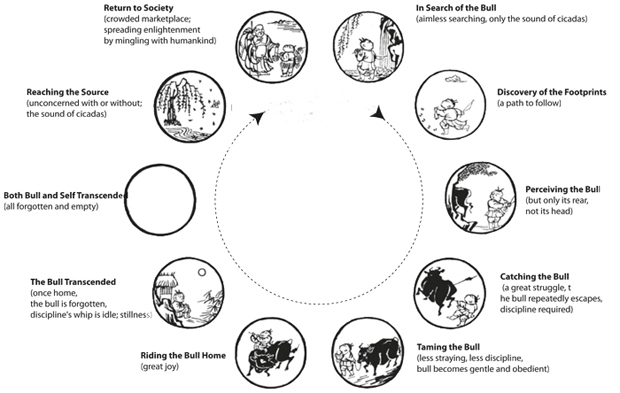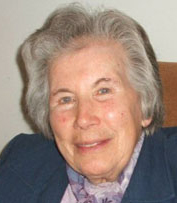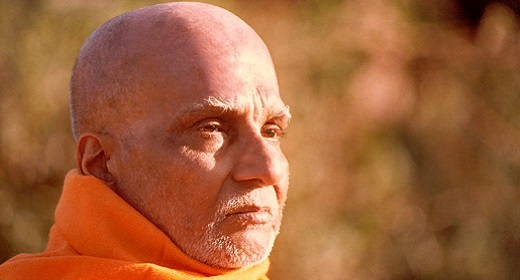by Anne Bancroft: And, similarly, in the ten-stage journey of Chinese Zen, the final state is one where you return to the beginning,

to the time when mountains were mountains and rivers were rivers. But now the mountains are seen as truly mountains and rivers are truly rivers.
“We shall not cease from exploration,
And the end of all our exploring,
Will be to arrive where we started,
And know the place for the first time.”
from Little Gidding by T.S. Eliot
For a lot of my spiritual searching I ignored all this because I couldn’t understand it. The transformation between the first stage and the last escaped me. Finding oneself being changed and experiencing the wonder of that change – yes, that I knew. But it did not seem to have much to do with mountains and rivers or knowing the familiar for the first time.

But luckily, in these last years of my life, everything has become much clearer. All it really needed was a small change of attention and suddenly the answer was there. I needed to see that there are two distinct ways of attention. One is the usual way of seeing only that which concerns myself and selecting that which serves the purpose of the moment and ignoring the rest. The other is to want nothing from the situation, but simply to look at what is there. And that way – the way in which the feeling of self is replaced by what one is looking at – seems to bring an indescribable happiness.
For now the familiar can be seen in a way it has never been before. Without the intervention of ‘me’ the trees became really trees and a person really a person. And the happiness is always there.

Anne Bancroft, author of many books on Buddhism and Zen, including: Zen, Direct Pointing to Reality, Weavers of Wisdom, and 20th Century Mystics and Sages. She lives in London, England.







































